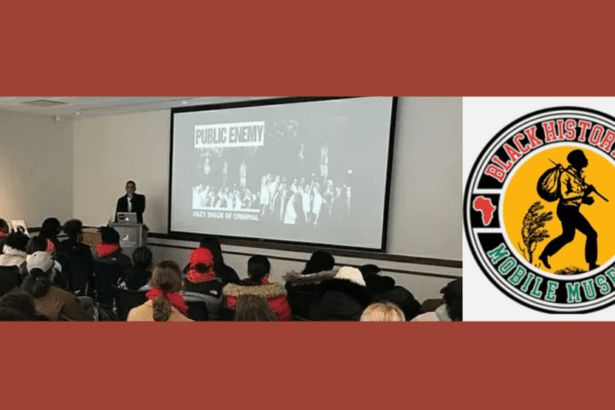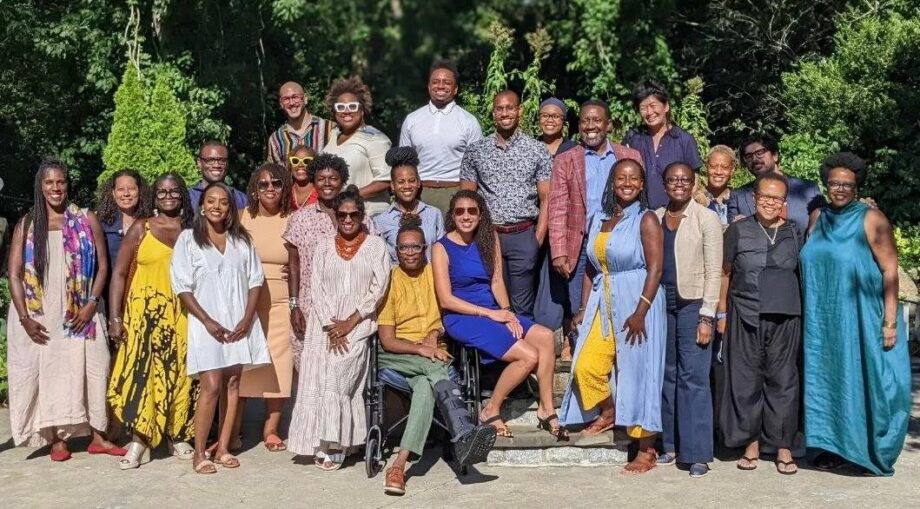|
Listen to this article here |
Every generation challenges the values of the previous one—it’s a healthy part of how social change happens. Our generation is no exception.
We’re bringing new approaches and perspectives to our work, expecting more social responsibility, environmental sustainability, self-care, and shifting visions of racial and gender justice. Perhaps most importantly, this passing of the baton is how ideas previously thought of as radical become normalized.
We explored these ideas as co-hosts of the third season of Dreaming in Color, a podcast that celebrates the genius of today’s BIPOC leaders. Created by the global nonprofit The Bridgespan Group, where we both work, the podcast offers leaders of color space to share how they have leveraged their unique assets and abilities to embrace excellence, drive impact, and more fully define what success looks like. This season, we set out to interview the next generation of leaders, and we ended up with an all-Black roster of inspiring world-builders.
While each conversation was uniquely inspiring, they shared some common themes. Here are five tips we learned from the next generation of leaders striving for social impact.
1. Be willing to fail for the right things.
Michael Tubbs, founder of End Poverty in California and Mayors for a Guaranteed Income, spoke to us candidly about losing his reelection campaign as mayor of Stockton, California. “It’s clear now what I’m willing to lose for because I’ve done it, and that has been so freeing for me,” he says. “It’s clear to me what my North Star is and what I’m willing to take a risk for.” Being willing to fail for something requires strong convictions and personal investment in bringing about the change we seek.
2. Celebrate your success.
As Arlan Hamilton, founder of Backstage Capital, told us: “Success is a form of activism. That is why I flaunt any successes that I have. I also am very honest about failures, but I flaunt very openly and happily the small, the big successes, because I want to act as a role model in that way.” That starts with learning to see your successes. “Take stock of what you’ve already done, and that will take you much further than you may think,” says Hamilton. “When you’re not feeling fulfilled, it’s because you’re not taking score right.”
3. Find your collaborators.
We need to bring others with us to get to the better world we seek. Although there’s room for us to differ in how and what we build, we stand to gain more by finding commonality rather than adopting a zero-sum mindset. National Employment Law Project President and CEO Rebecca Dixon reflected on how interest-based problem-solving within her organization taught her this valuable lesson and its broader implications. “Our sector has to build up its skills around how we collaborate in ways that are productive and fruitful for both parties,” she says. “Everything doesn’t have to be a tug of war.”
4. Recognize the importance of narrative and storytelling.
To bring about real and lasting social change, we need to rewrite the script—a challenge the next generation is already taking on. Tubbs explains: “America was founded on this myth of meritocracy, this myth of a land of opportunity. We have organized ourselves, our institutions, our expectations of each other, and our laws based on those stories.” Brea Baker, a freedom fighter and writer who has contributed to dozens of electoral and advocacy campaigns, agrees: “To me, it becomes the responsibility of artists to step up and say that the truth has to come out in some way, shape, or form. We are going to be proper recorders of history. We are not going to allow this story to be whitewashed.”
5. Approach the work with “radical love.”
Lastly, Baker defined this powerful concept for us: “Radical love is to say that I’m willing to go through the mess with you because it leaves us both better on the other side,” she says, adding that it can be easy to care only about people who look or think like you do. Yet, we should love others and want their work to succeed. When asked to name something considered radical that shouldn’t be, Robert Rooks, CEO of REFORM Alliance, a nonprofit dedicated to probation, parole, and sentencing reform, answered simply: “Love. People are afraid to love.” For Rooks, love happens every day. He shares: “I meet the most amazing folks on the ground every day, who work to take their pain and turn it into purpose.”
Across fields, including poverty eradication, public safety for all, reparations, and civil engagement, these leaders are doing incredible work to reimagine our world. They remind us that a better world is possible—but it’s up to all of us to help build it.




